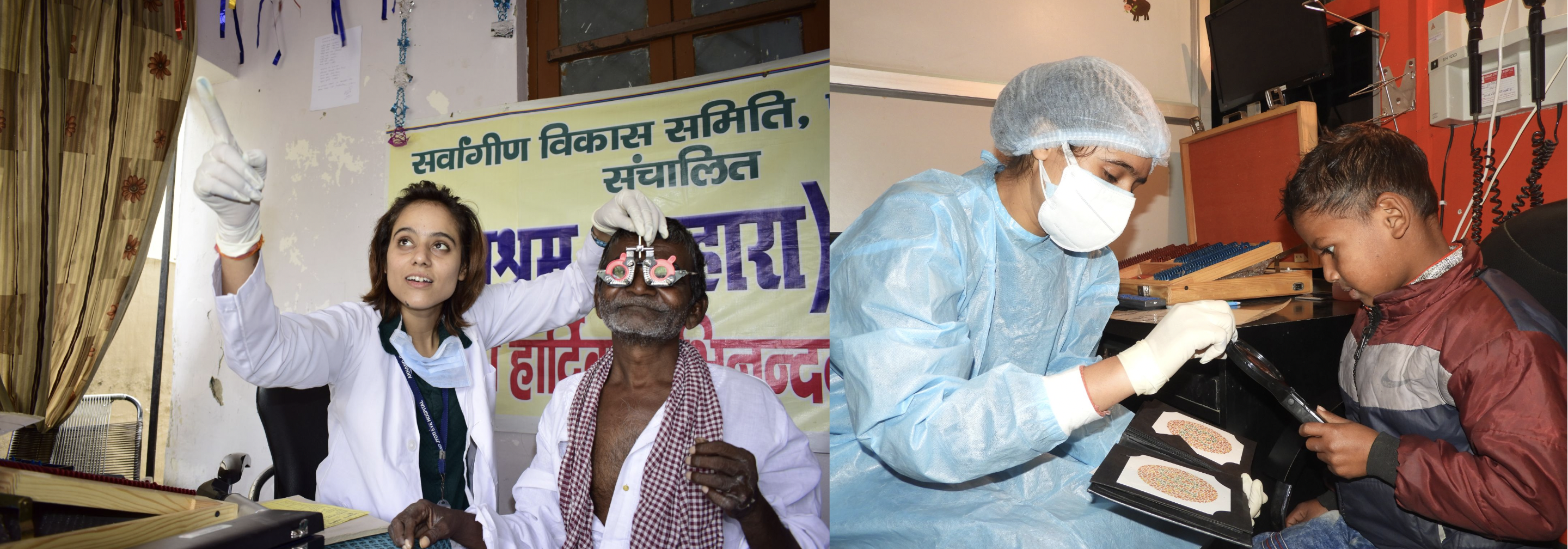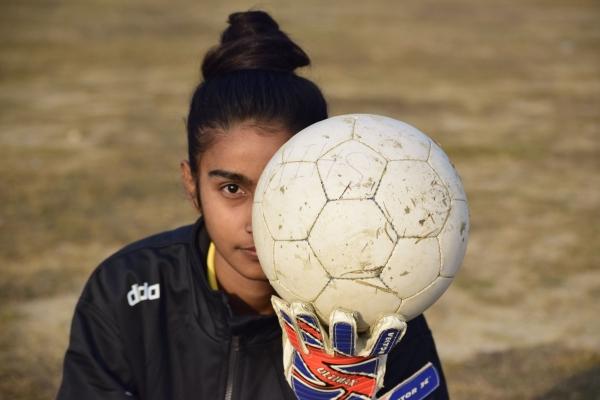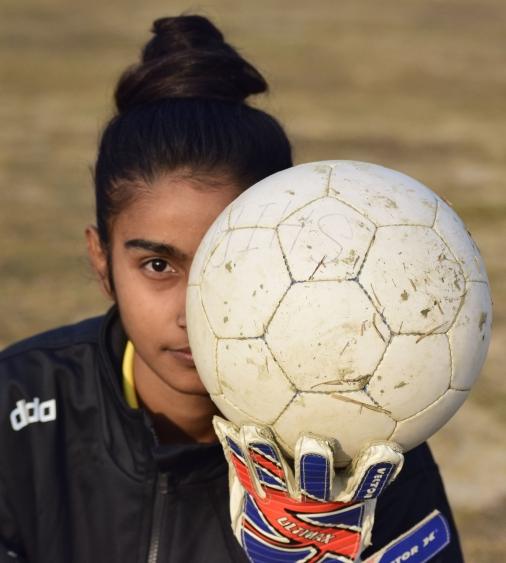Improving girls’ education levels (and by extension, bettering their futures), engaging local communities, and men’s allyship are critical to creating a safer world for women and girls. Through my involvement in Akhand Jyoti Eye Hospital's FOOTBALL TO EYEBALL programme over the past 12 years, I have seen this approach work. Football to Eyeball aims to educate, train and empower village girls in one of India's most economically troubled states, Bihar. Over the longer term, it encourages them to become the agents of their own change, and that of their communities.
Education is the key
Shashi, a former participant in our Football to Eyeball programme, is now its leader. Without the programme, Shashi believes she would have faced the slew of gender-based discrimination, violence and unemployment that so many girls in India do. Over 90% of the participating girls confirm that this programme has changed their lives.
Education empowers girls to identify, address and seek help for instances of gender-based violence. Sending a girl to school gives her access to future employment, the ability to plan for her family, and many other options in life. In the long term, education contributes to a safer, better future for entire communities.
Community support enables grassroots change
The community must be involved if these concerns are to be addressed successfully. Villages or local communities must take action to protect girls, because violence and abuse usually occur in or close to home and the community. Programmes and initiatives at the local level can successfully prevent and end violence against women and girls. For example:
- Community members may be more likely to witness and report abuse if they know how to respond to the first signs/symptoms.
- Villages can offer assistance and support to victims of violence as they recover.
- Community members can serve as positive role models for young people, helping develop attitudes and behaviours that encourage equality and nonviolence.
- Community leaders can motivate neighbours to support laws and programmes that promote the safety and welfare of women and girls.

Men are critical allies
Since our programme started, I have witnessed the gradual change in the mindset and approach of the fathers and brothers in households.
Some ways we encourage men to work towards a safer world for our women and girls:
- Calling out harmful behaviour.
- Supporting and promoting the voices of women and other under-represented groups.
- Intervening when they witness harassment or abuse.
- Supporting programmes and laws that safeguard women by advocating for them.
- Eliminating toxic masculinity and damaging gender stereotypes that could contribute to violence against women.
- Listening to and believing women who report harassment and abuse.
- Supporting organisations that work to end violence against women and girls.
- Calling on other men to stand together as allies in the struggle to defend women.
Fathers, brothers, cousins, and uncles actively supporting girls’ pursuit of higher education is an encouraging sign that mindsets are changing.
For women to be safe, men’s support is critical. Reduction in child marriages, higher numbers of women in the workforce, women having a say in family decisions, and robust engagements with local communities could not have happened without the active support of men. I have seen immense improvements at the ground level on all these counts.
Local role models make an impact
Each girl plays a critical role in changing mindsets of an entire community. Local engagement is what Akhand Jyoti's programmes work to build through community events organised by the hospital.

Chhaya (one of the girls graduating from the programme) organised over 100 small events in her community in the past year. She observed, in the course of her interactions, that families in villages no longer confine their girls to the home for their safety, and are more open to giving their girls the opportunity to go to school. This is reflected in Akhand Jyoti's numbers. A decade ago, we got 20-30 applications per year for enrolment in our six-year programme. Now, we have more than 800 applications for the same programme.There is still immense work to be done, but social change is gradual. If we continue to focus on the tenets above, I believe we will achieve our aim to create a safer world for women.






